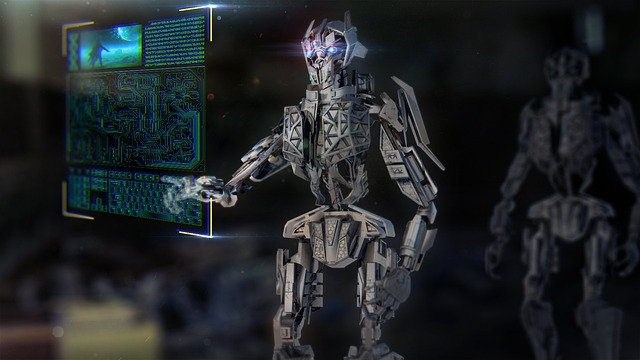In recent years, Robotics and Artificial Intelligence (AI) have emerged as two of the most transformative technologies in the modern world. Separately, each of these fields has made groundbreaking advances. But when combined, they create a powerful synergy—giving rise to intelligent machines capable of learning, adapting, and performing complex tasks with minimal human intervention.
What Is Robotics & AI Integration?
Robotics focuses on the design, construction, and operation of robots—physical machines that can perform tasks either autonomously or semi-autonomously. AI, on the other hand, refers to the simulation of human intelligence in machines, allowing them to think, learn, and make decisions.
Integration of AI in robotics means embedding intelligent algorithms into robots to enhance their decision-making, adaptability, and performance. This results in “smart robots” that go beyond simple programming—they learn from their environment, respond to changes, and even improve over time.
Why Is This Integration Important?
Here are a few key reasons why the integration of robotics and AI is revolutionizing industries:
1. Enhanced Automation
Traditional robots follow predefined commands. But AI-powered robots can analyze data, detect patterns, and adjust their actions without human guidance. This leads to faster, more efficient, and more flexible automation.
2. Improved Precision and Quality
In manufacturing, for example, AI helps robots recognize defects, adjust their movement, and perform with greater accuracy and consistency, reducing human error and material waste.
3. Human-Robot Collaboration
Collaborative robots, or cobots, are designed to work alongside humans. With AI, these robots can understand human gestures, predict actions, and assist in real time—making workplaces safer and more productive.
4. Real-Time Decision Making
AI enables robots to make quick, data-driven decisions in critical situations. In autonomous vehicles or robotic surgeries, milliseconds matter—and smart robotics delivers.
Applications of Robotics & AI Integration
Let’s explore some real-world areas where this integration is making a big impact:
✅ Healthcare
- AI-powered surgical robots assist doctors with precision.
- Robots help in rehabilitation therapy and elderly care.
- Automated diagnostics using robotic imaging tools.
✅ Agriculture
- Drones and robotic harvesters use AI to monitor crop health and improve yields.
- Smart irrigation systems manage water usage efficiently.
✅ Logistics and Warehousing
- Robots with AI manage inventory, pack goods, and optimize delivery routes.
- Companies like Amazon and Alibaba already use these systems extensively.
✅ Security and Surveillance
- Robotic patrol units equipped with AI detect unusual behavior and alert authorities.
- Facial recognition and motion sensors improve safety in public places.
✅ Education and Training
- AI-enabled teaching robots personalize learning for students.
- Simulated training environments use robotics for hands-on experience in medicine, aviation, and engineering.
Challenges to Overcome
Despite its benefits, integrating AI and robotics comes with challenges:
- Ethical concerns over job loss and machine autonomy.
- High costs of development and deployment.
- Data privacy and security risks.
- Regulatory hurdles and lack of standardization.
However, as technology evolves and becomes more accessible, these challenges are being addressed by innovators, researchers, and governments alike.
The Future Ahead
The future of robotics and AI integration is incredibly promising. We are entering an era where robots will not only perform tasks but also learn from experience, adapt to humans, and help solve some of the world’s biggest problems—from climate change to disaster response.
Businesses that embrace this technological fusion today are setting themselves up for greater efficiency, innovation, and competitive advantage tomorrow.
Final Thoughts
Robotics and AI integration is more than a trend—it’s the next step in human-machine collaboration. By combining mechanical strength with artificial intelligence, we are building a smarter, more connected world. Whether it’s helping a surgeon save lives or a farmer improve harvests, the possibilities are endless—and we’re just getting started.
